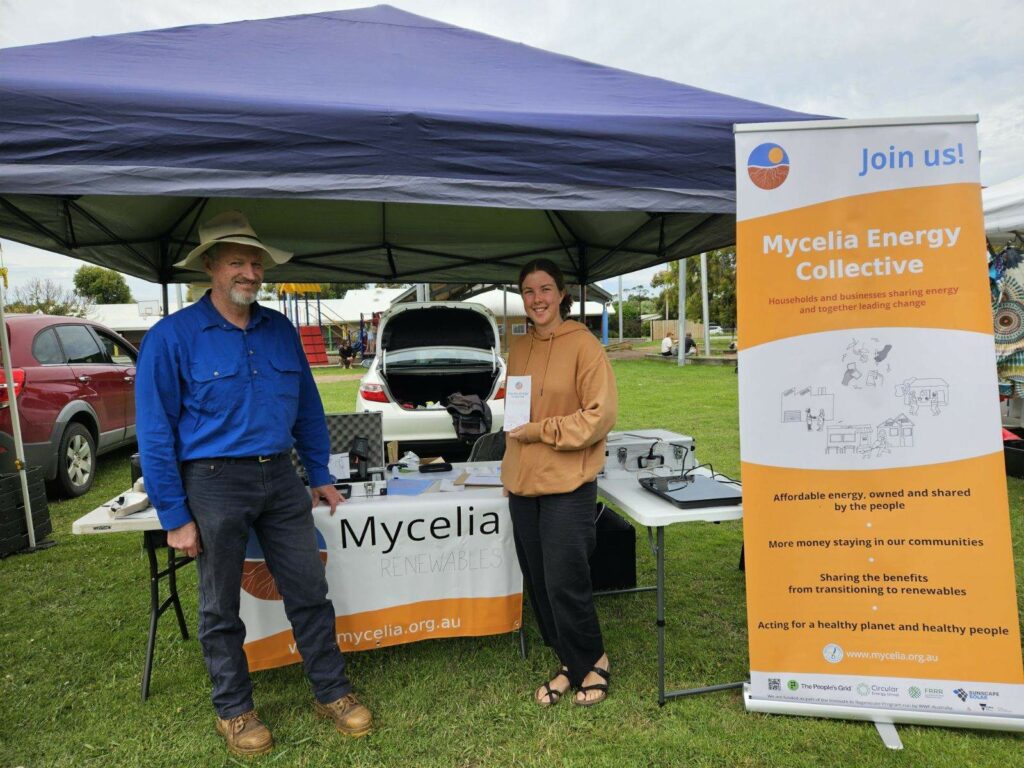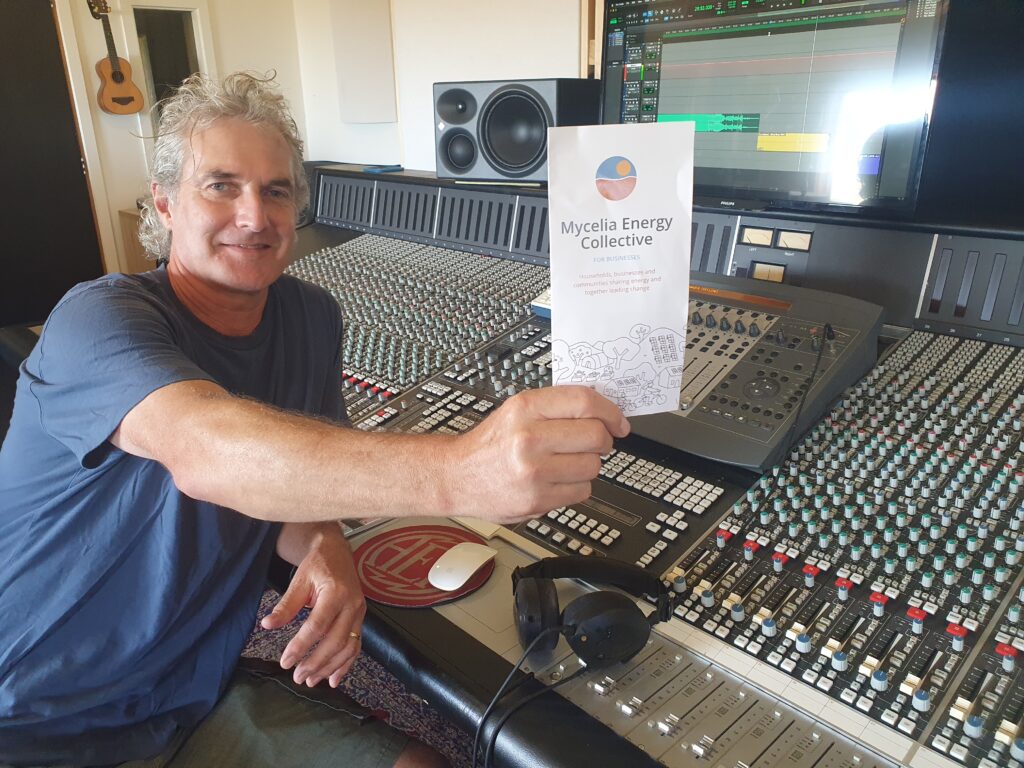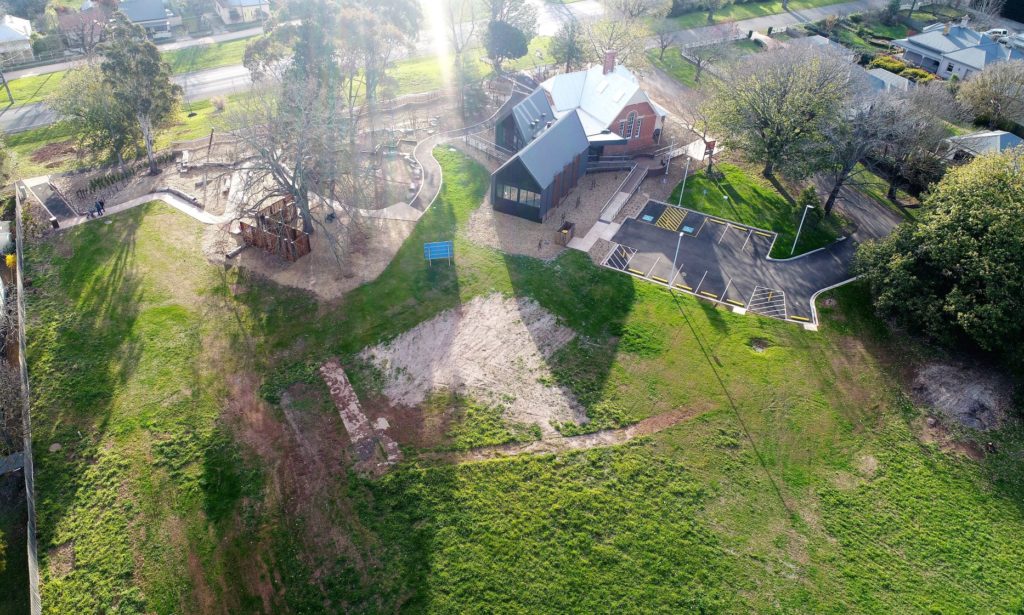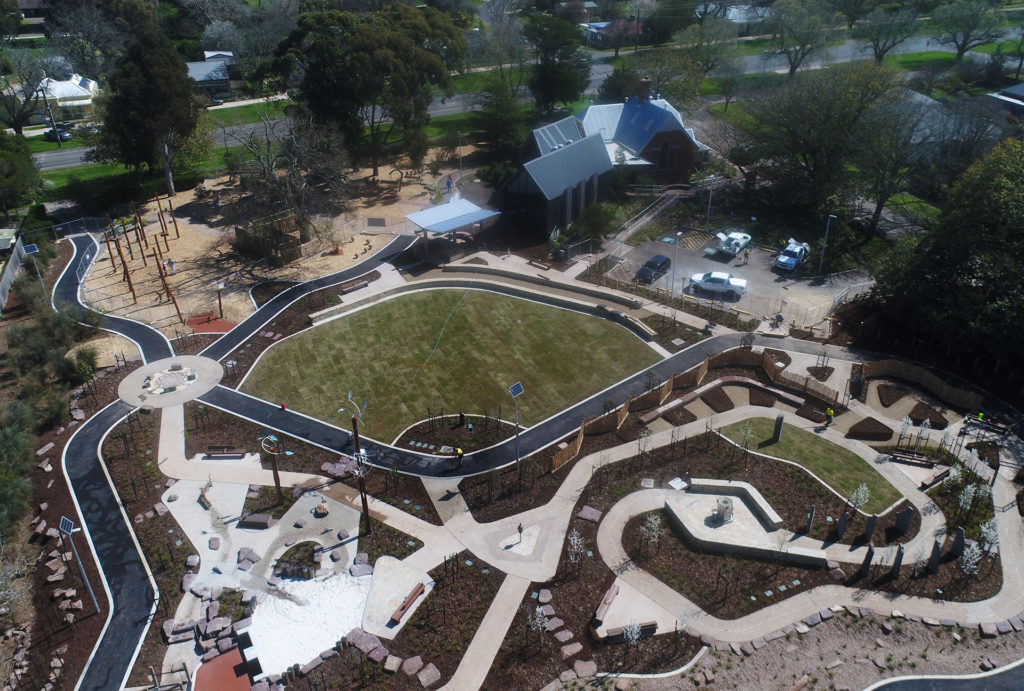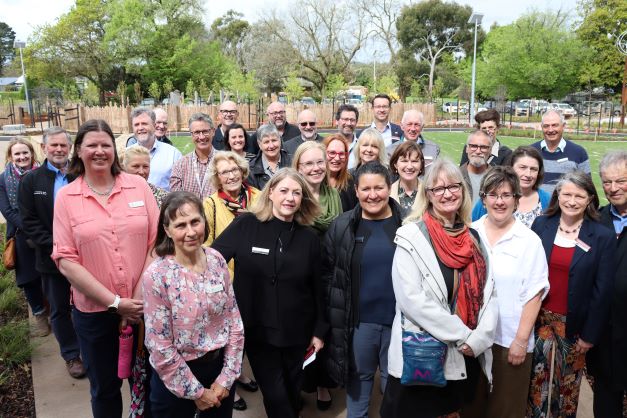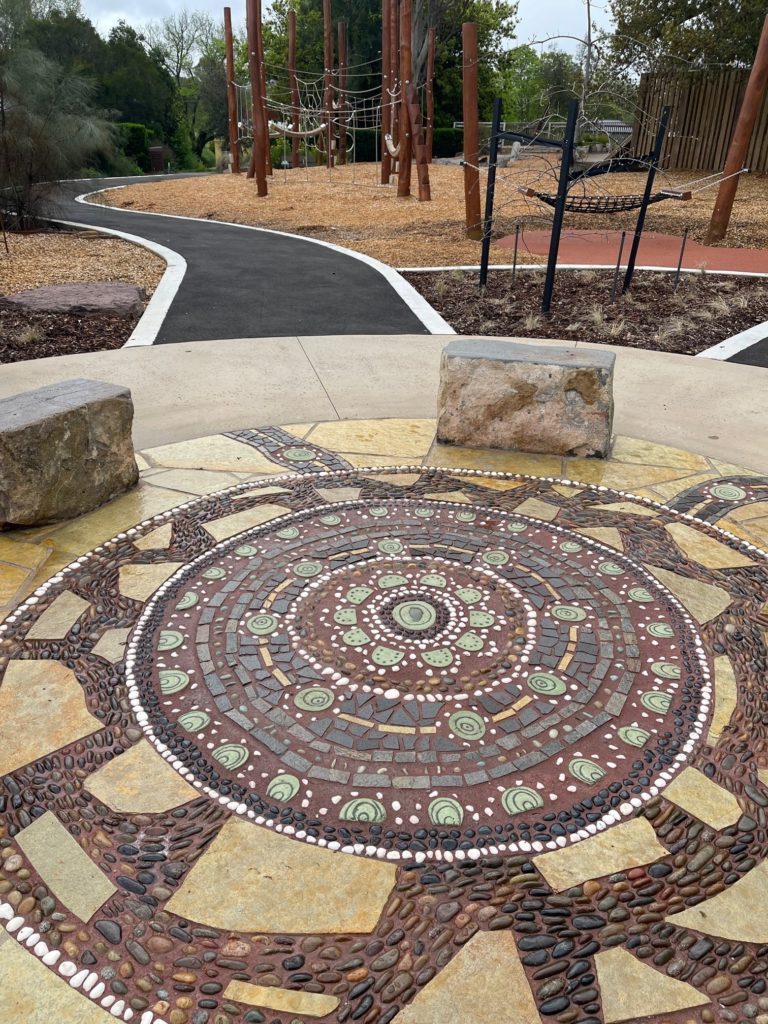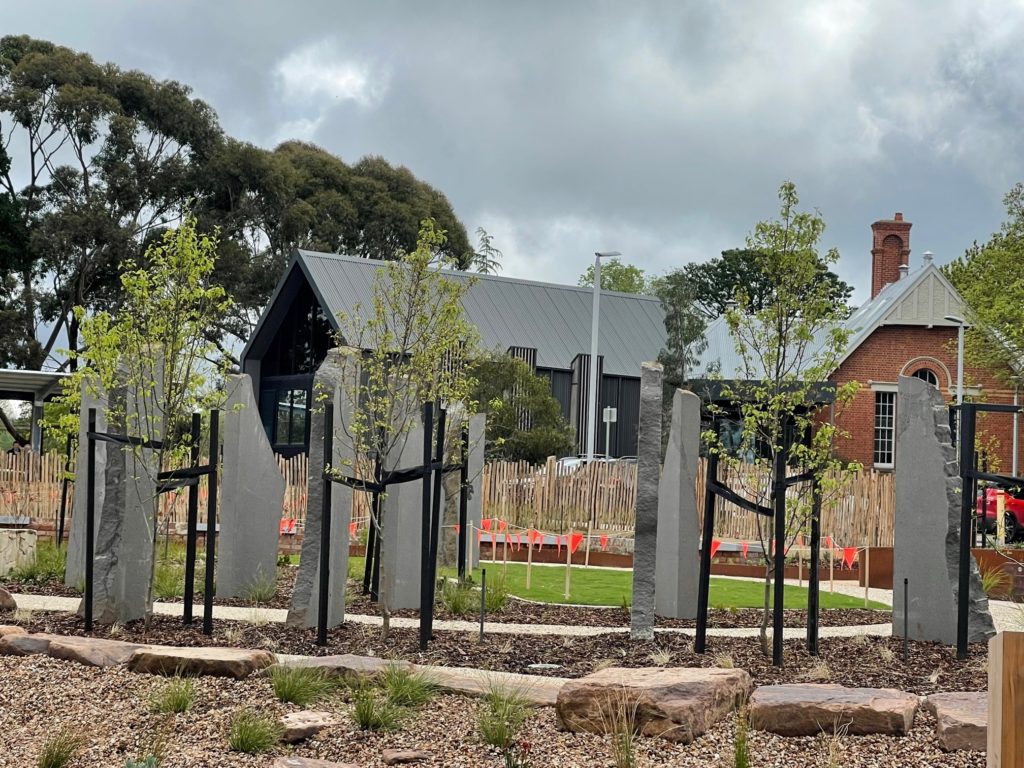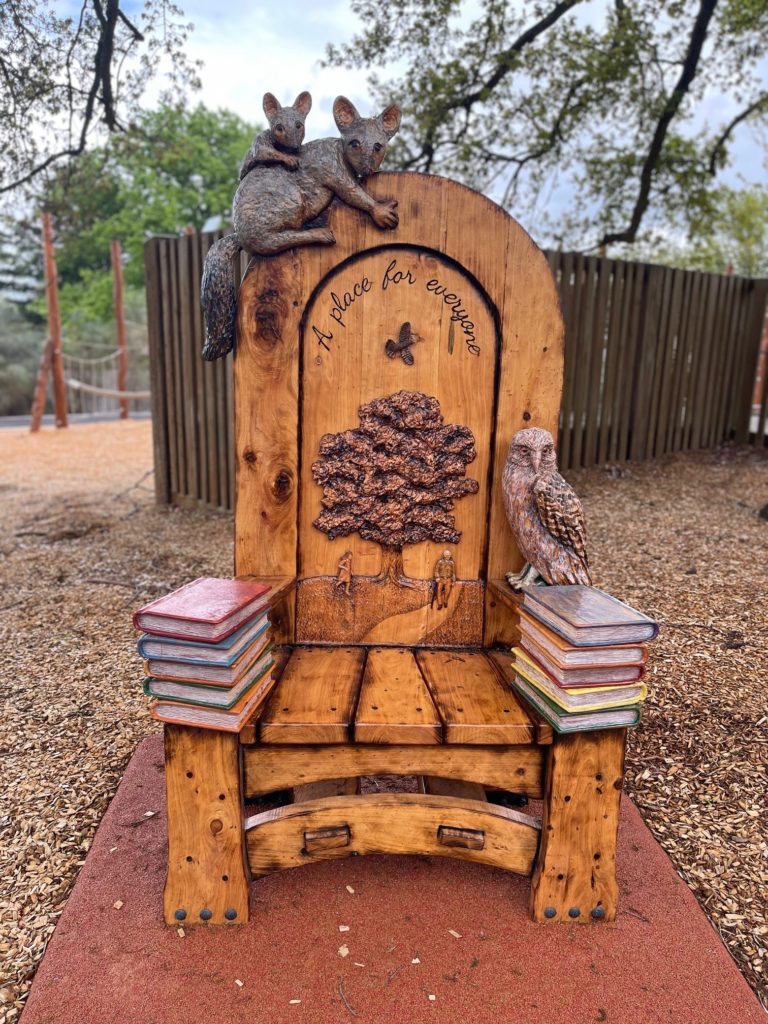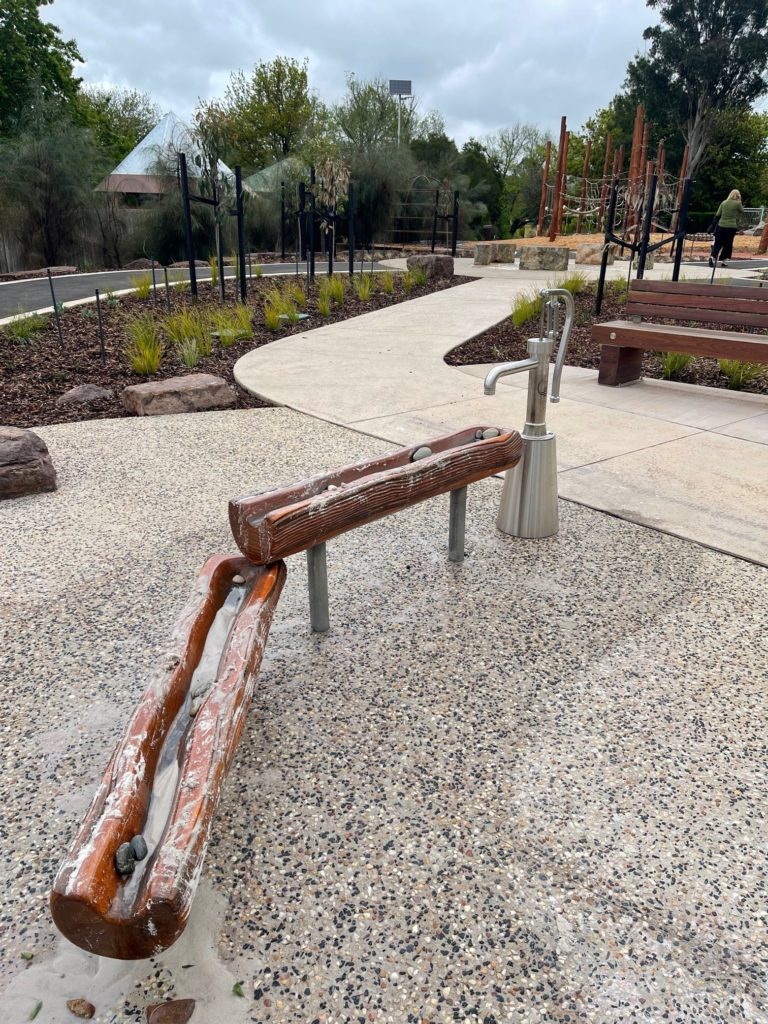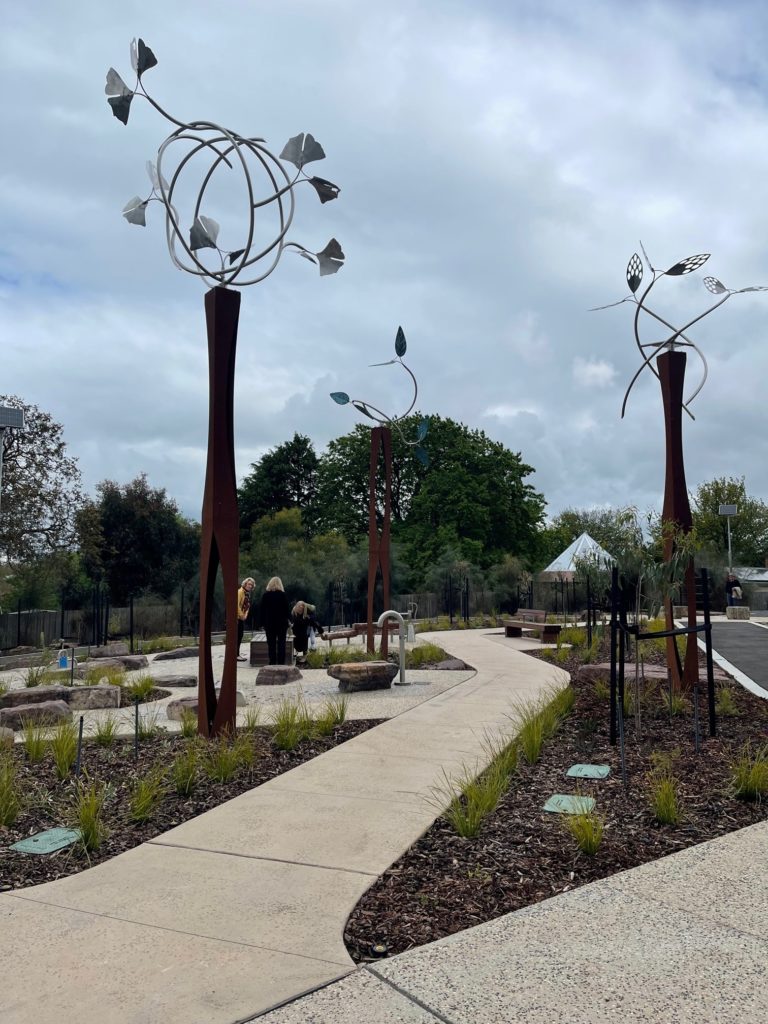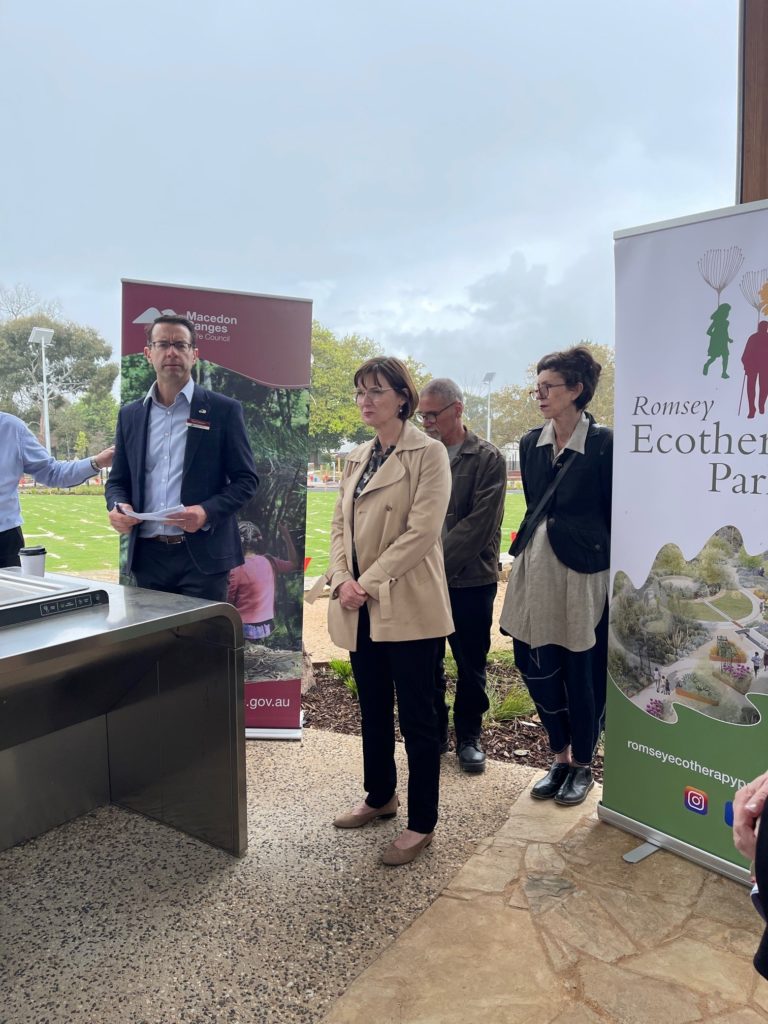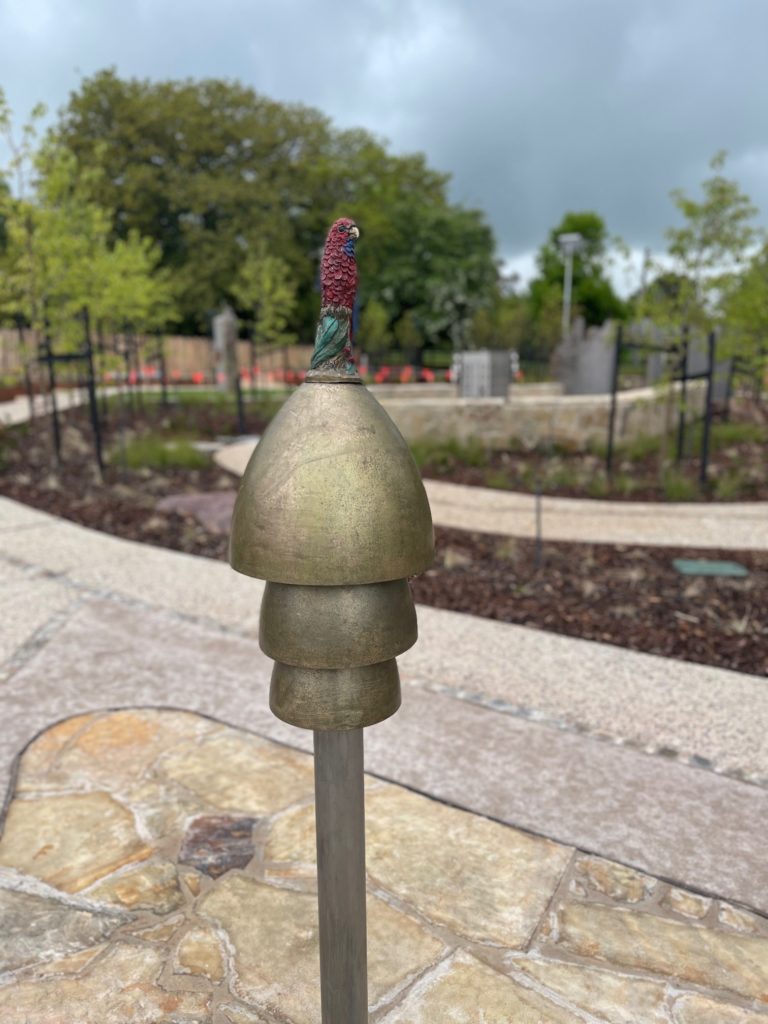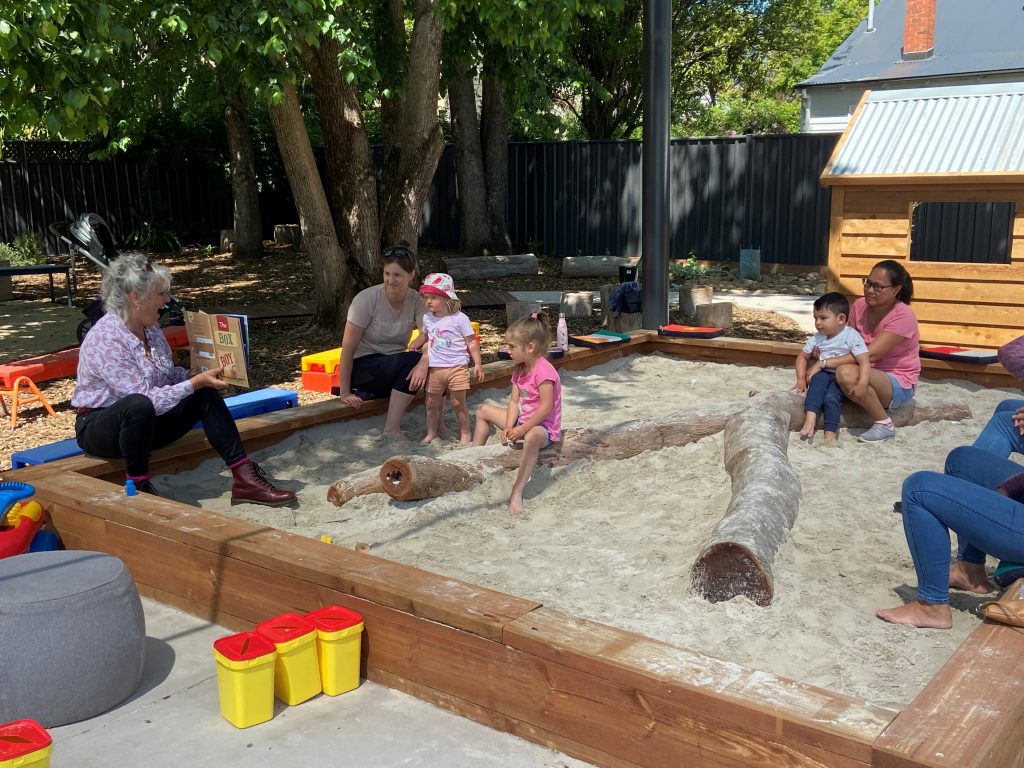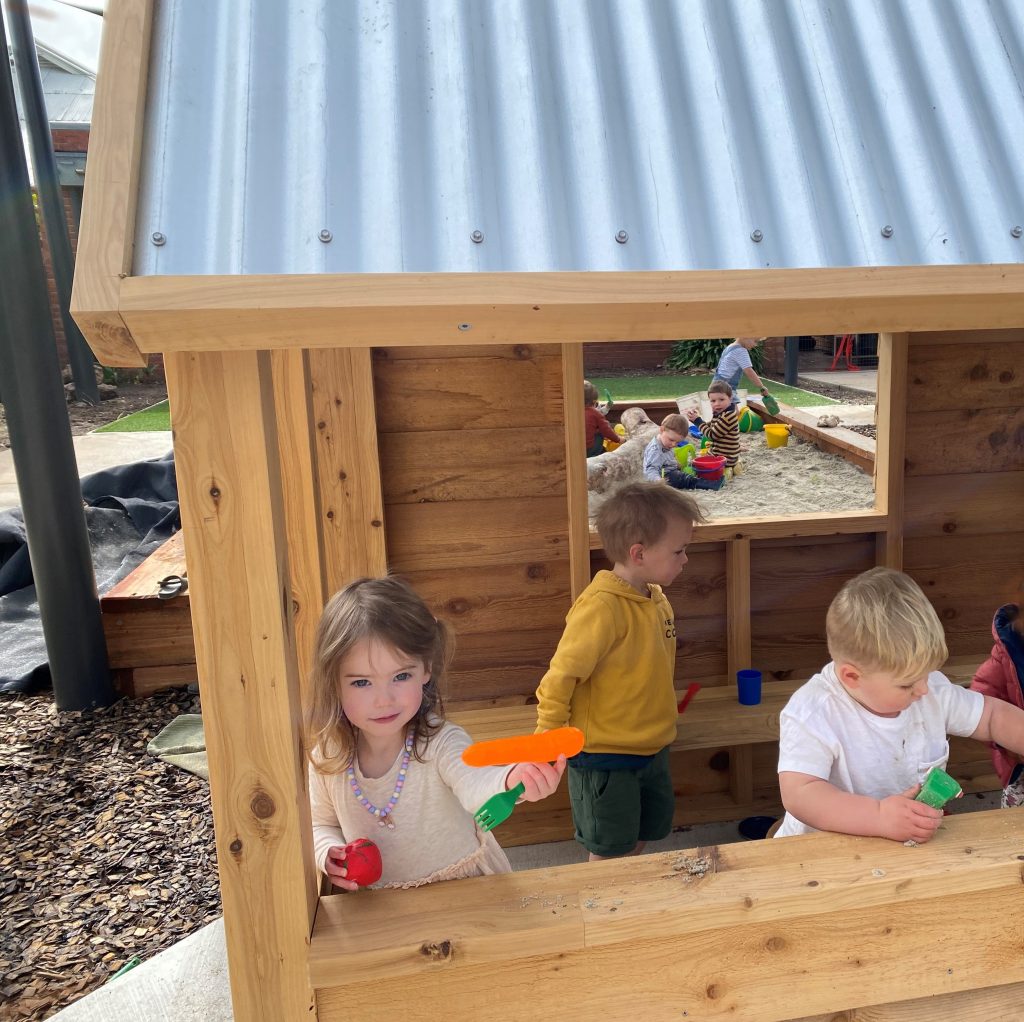Foundation for Rural & Regional Renewal (FRRR)
In January 2022, a review of the Glen Innes health workforce revealed that all three local GP practices had closed their books to new patients – one GP practice had a 300 person wait list! Local health care had become victim to an ageing population, with two GPs scheduled to retire at the end of 2022 and only one in the area under 50 years of age. There were also vacancies in OT, physiotherapy, dentistry, RNs, speech therapy, psychology, and disability care, and many residents, as well as the Aboriginal Health Service, were relying on GPs from up to 60kms away.
Modelled on a Canadian-borne approach, Attract Connect Stay – Glen Innes (ACS-GI) is a grassroots initiative to better attract and support the recruitment and retention of qualified health professionals for the 9000 strong Glen Innes community. During the program’s 2022 pilot, the community demonstrated strong support and capacity to ensure momentum for the model, including building a capable Board and governance structure.
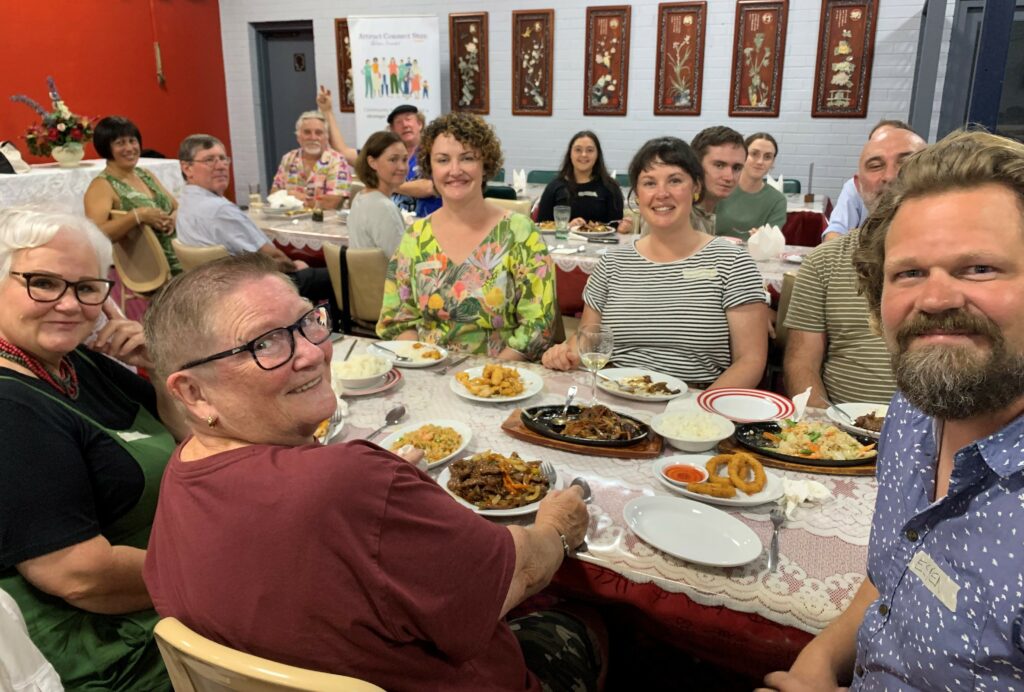
ACS-GI holds an FRRR Fundraising Account, to support operational costs including wages of a Health Workforce Recruiter Connector (HWRC) and general activities. The HWRC role is key to embedding the initiative – this person ensures new-to-area health professionals and their families are supported so that they stay in the district. ACS-GI says this can range from helping them find suitable accommodation to helping their partners find work, daycare or schools for children, connecting them with sporting groups and more.
“The recruitment of Health Professionals is a complicated mission and requires a lot of research. It is a matter of trying anything to elicit the attention of those elusive people who may be just looking for a green-change, a new start for young families away from the city.”
In just under a year the HWRC has saved one GP surgery from closure, assisted 166 patients to move from waiting lists to receiving GP care locally, enabled 153 existing patients to continue receiving care in Glen Innes after their GP retired, and supported 21 new-to-area health professionals to connect and settle in Glen Innes.
Every dollar helps local residents have better access to local healthcare when they need it. If you can help, donate here.
FRRR’s Fundraising Accounts enhance an organisation’s network and fundraising capabilities by offering tax deductibility for donors. FRRR manages the funds with a team of financial experts and offers valuable administrative support, ensuring proper allocation and supports good governance by providing financial statements to account partners for donations supporting their activities. Currently, FRRR hosts 51 fundraising accounts. If you’d like to know more about how this works, contact Jo Kemp at FRRR.
Founded by Stephanie Trethewey, the 2022 AgriFutures National Rural Woman of the Year, Motherland Australia’s mission is to eliminate the crippling social isolation many rural mums face by connecting them to a supportive online community and offering a mothers group program that every rural mum can access, regardless of her location.
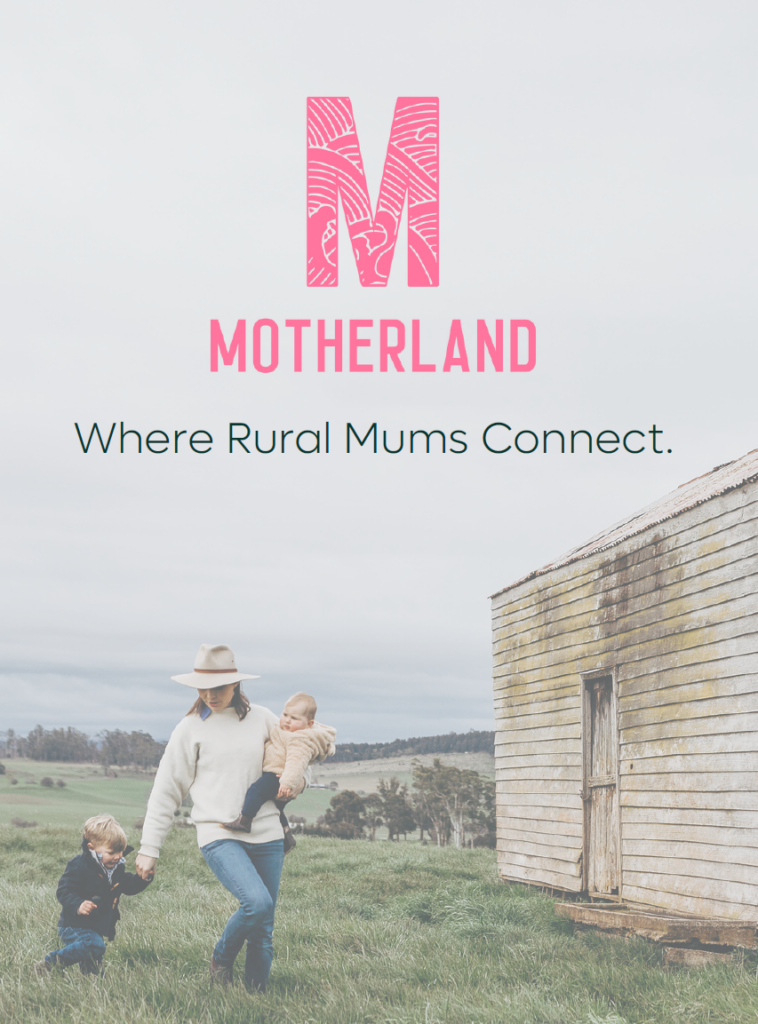
At the core of Motherland’s initiatives is the Motherland Village program, an innovative online mothers’ group program designed to transcend geographical barriers. The program, which runs for six weeks, provides a personalised virtual space for rural mothers, creating connections and support networks that endure well beyond the program’s duration.
The impact of the Motherland Village program is evident, with 87% of participants reporting significant positive changes in their lives. The program has not only addressed the issue of social isolation but has also become a catalyst for rural mothers to do things differently and communicate regularly within their groups.
Complementing the virtual community is the Motherland podcast, launched in December 2019. With 27,000+ monthly listens and over 210 rural mothers interviewed, the podcast has become a powerful platform, consistently ranking in the Top 15 parenting podcasts on Apple iTunes nationally. It serves as a voice for rural mothers, addressing their unique experiences, challenges, and triumphs.
Over the past six months, Motherland has utilised an FRRR Fundraising account to fund a crucial Partnerships and Sales role. This strategic move has enabled the organisation to capitalise on the demand from the rural motherhood community, leading to a 50% increase in the online community and a 25% increase in projected partnership revenue for FY23/24.
“Our NFP account has been a gamechanger in helping us secure the funds required for this role- which has been pivotal to our charity’s growth and impact across rural Australia.”
The role has not only secured additional podcast advertising revenue and corporate partnerships but has also been instrumental in attracting sponsorship funds for Motherland’s national conference. The newfound revenue will also allow for improvements to the Motherland Village program for 2024, including the creation of video content featuring health and wellbeing professionals, which is currently underway.
Motherland is in the early stages of developing a formal fundraising strategy, with plans to be more public with their fundraising efforts and FRRR fundraising account throughout 2024. The organisation is focused on continued growth, with ongoing efforts to expand its impact through the Motherland Connect platform—an online resource hub for rural mothers that will launch later in the year.
You can support Motherland through the FRRR fundraising account, contributing to the reduction of social isolation, improvement of mental health outcomes, and the creation of meaningful connections across rural communities.
Mycelia Renewables is a social enterprise focused on supporting and enabling regenerative economy initiatives with Traditional Owners, rural businesses and regional communities, specifically in the areas of cultural and environmental governance and a fair transition to renewable energy.
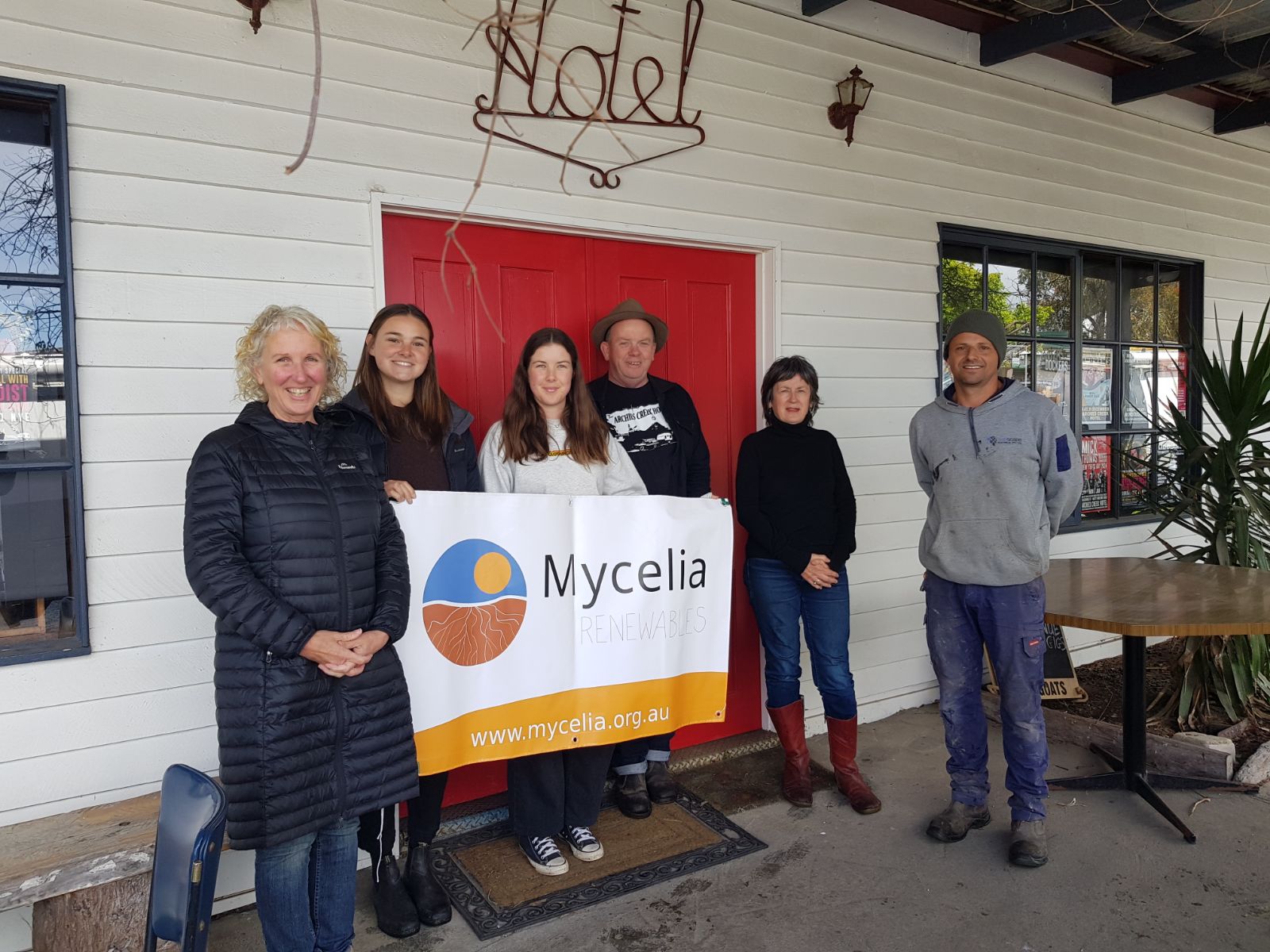
Mycelia’s work on the ground to date is diverse and their value is far reaching, focussed on delivering tangible sustainability outcomes with communities, and aimed at strengthening and empowering through a service model of cooperative engagement, knowledge sharing, deep listening and co-design.
Mycelia has two central operations:
- Co-designing and owning or co-owning renewable energy projects with communities and small to medium enterprises (SMEs), to increase the amount of affordable renewable energy and to develop an independent income stream for Mycelia’s charitable purposes
- Supporting communities and SMEs to design and implement regenerative economy projects through their unique services at pro bono, low or full fee rates
Through an FRRR Not-For-Profit Fundraising Account, to date Mycelia has raised more than $70,000 to focus on engaging with local communities and SME’s across Victoria to co-design and implement renewable energy policies and strategies.
The group also created the Mycelia Energy Collective, an initiative which enables households and businesses with and without solar and batteries to share renewable energy through The People’s Grid. Currently supported by 104members, this has been their main focus of late. Mycelia is seeking additional funding to boost organisational capacity over the next 2-3 years to fast track the work being done to hone the Mycelia Energy Collective model to a scale that ensures a sustainable revenue stream. They are also developing partnerships with communities that wish to replicate the model.
In addition to further developing the Collective offerings, Mycelia would like to engage an organisation that can measure and report on the different benefits of the Mycelia Energy Collective, specifically social impact measurements through a community-wealth building lens to clearly demonstrate the value to other communities and future funders.
The work that Mycelia is doing closely aligns to many of FRRR’s purposes and objectives and is a good example of how FRRR can support organisations and communities to raise funds that align to our vision to enhance the long-term vitality and sustainability of remote and rural communities across the country. If you’d like to support them, you can do so via their Fundraising Account.
If your group has a similar project, contact Jo Kemp to explore whether a Fundraising Account could help your organisation achieve its goals.
The Fremantle Foundation was established in 2010, and seeks to create a thriving community through local giving and to address critical community needs by providing inspiring ways for people to give. They partnered with FRRR in 2020 through a Community Foundation Account, allowing them to support a wider range of community organisations conducting charitable activities in rural and regional WA, particularly those without their own DGR status – which is the majority of community organisations in regional and remote areas.
In FY23, for the second year in a row, the Foundation distributed grants exceeding $1 million across 62 grants, creating impact in the local Fremantle community, the broader metropolitan area, regional and remote WA, as well as in other parts of Australia.
While most of their donors focus on metropolitan areas, the FRRR Community Foundation Account specifically allows the Fremantle Foundation to support more projects in regional communities.
For example, the Northhampton community, located around five hours north of Fremantle, was badly affected by Cyclone Seroja in April 2021. A group of ex and current AFL footballers, all from around Northampton, set up a fund with Fremantle Foundation to support rebuilding in the township and the surrounding region.
Two projects that have been completed to date include the refurbishment of the Olgilvie Hall and construction of a remembrance garden at St Mary’s School. The garden includes new paving, bench seating and a selection of plants, including the much-loved rose garden. In addition, signage has been installed for visitors to gather and learn about the parish and impact of Cyclone Seroja.
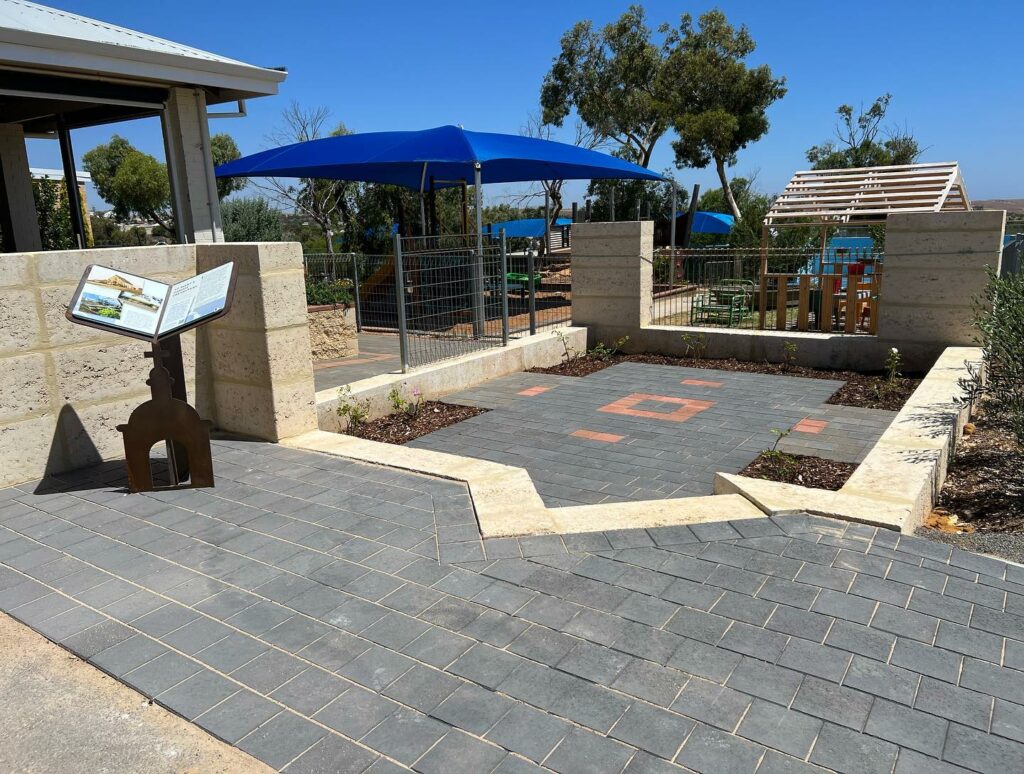
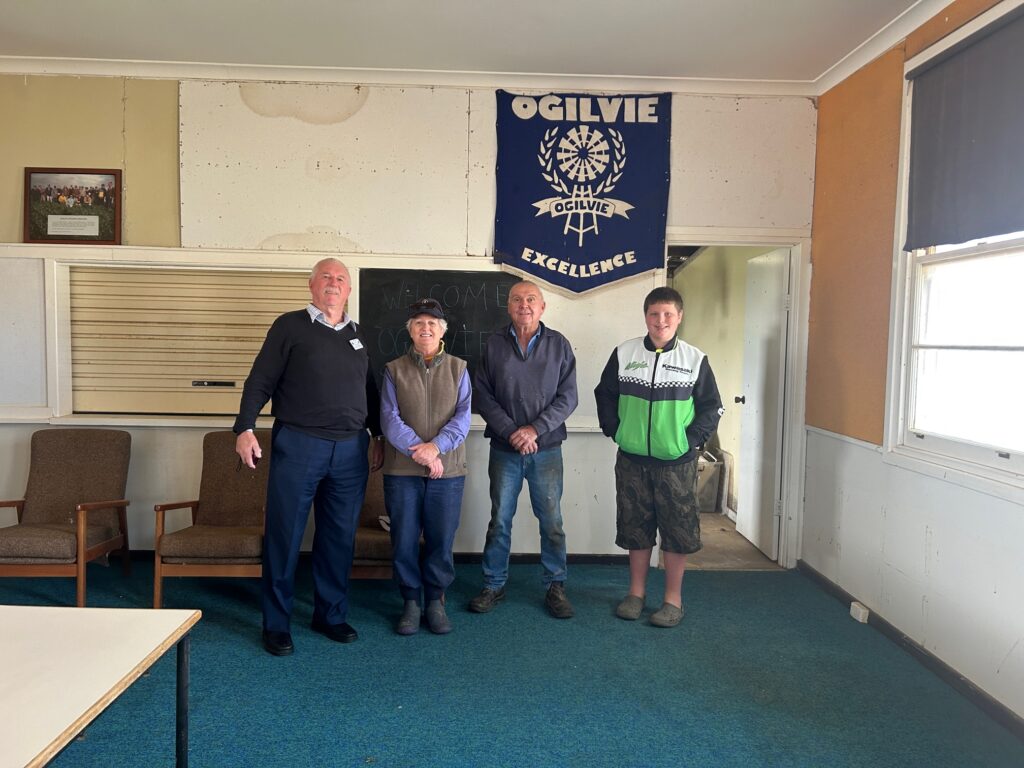
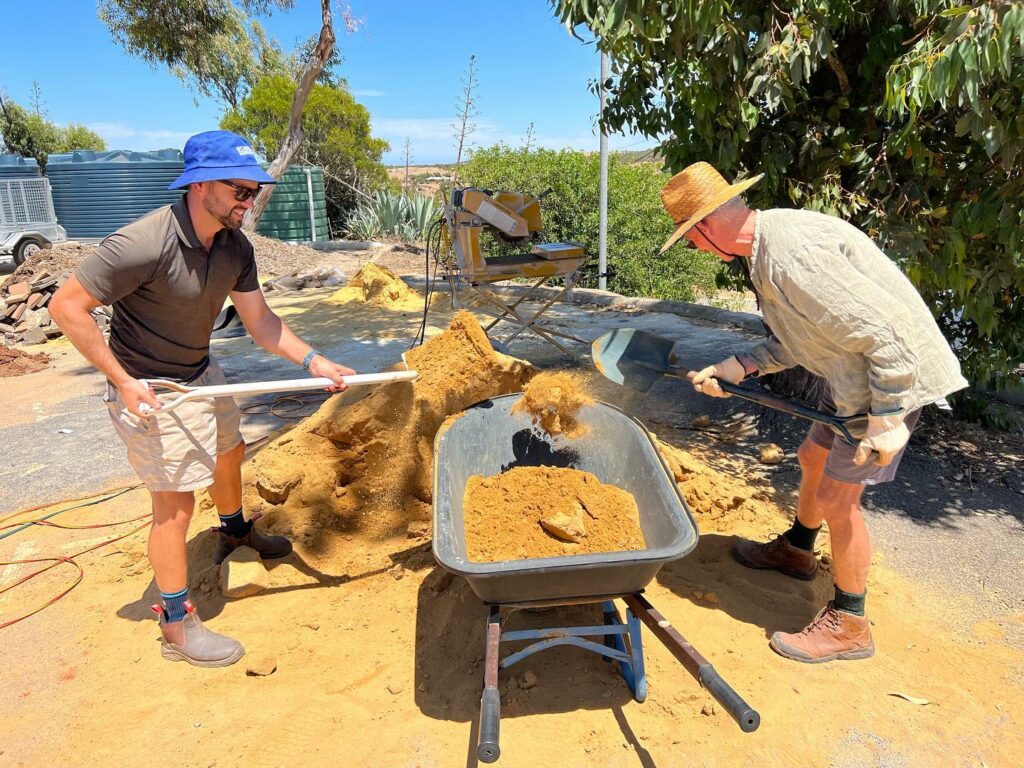
The Fremantle Foundation is also using their FRRR Community Foundation Account to ensure donated funds support the launch of the Peel Community Fund.The Fund was established in 2019 by members of the Peel community, with the aim of creating their own Community Foundation in the region. Thanks to their FRRR Account, Fremantle Foundation was able to award them a grant to support the development of critical infrastructure, including a website, communication and marketing plan, marketing materials, operational structure, committee governance and membership / giving structures.
In another example of their ability to inspire local giving, The Esperance Ag Fund was established in 2021 by the local agricultural sector in partnership with Fremantle Foundation, with the sole purpose of making a difference within the Esperance community. Collectively, the farming community, which is about 700 km from Fremantle, provides support to the wider Esperance region by funding projects that make a positive impact. They’ve recently awarded a grant to the Recherche Aged Welfare Committee for the installation of a reticulation system at the Alchera Aged Care Housing property.
Pauline Eves from Fremantle Foundation said they are most grateful for the assistance provided by FRRR to enable grants like these to happen.
The Romsey Ecotherapy Park Inc (REP) group persevered for 14 years to deliver a very special place in nature for local community members and visitors to the Macedon Ranges region in Victoria. Their multi-stage project transformed a derelict historic school site into a unique park that is enhancing health and wellness in nature for all ages and abilities. It was finally completed in November 2022.
REP Committee member, Jenny Stillman, said the park is proving popular already. “There are almost always people of all ages using the Park (including engaging with its inspired-by-nature art installations). Earlier this year, Macedon Ranges Shire Council focused its youth initiative program activities at the Park. A celebratory “Party in the Park” community event held in February 2023 was incredibly well attended. All of the artists involved in the project were present and spoke about their work. In addition, the potential for the Park’s future use was showcased with music performance and story-telling included in the event’s program.”
FRRR joined REP’s journey in July 2020, partnering with them to support their ‘Art in the Park’ fundraising campaign, through a Not-for-Profit Fundraising Account. This allowed all those who donated to the project to receive a tax-deduction for their gift.
In total, REP raised around $108,000 through their partnership with FRRR, which was used to fund the art installations during the Stage 2 (Sensory Therapeutic Space) construction phase.
Ms Stillman said that the engagement and overall partnership with FRRR was outstanding.
“Thank you for all of your support and wise counsel. It has certainly been great for our project and our community group. The FRRR not-for-profit fundraising account has been incredibly important to REP’s capacity to launch and run a successful fundraising campaign. We have strongly recommended FRRR partnerships to other groups embarking on significant projects!”
Ms Stillman went on to explain that a hugely significant flow-on effect was the subsequent funding from Regional Development Victoria to cover the Park’s Stage 3 works, which resulted in the completion of Romsey Ecotherapy Park.
“We believe this commitment (in addition to RDV’s significant Stage 2 funding commitment) was partly facilitated by the success of REP’s ‘Art in the Park’ campaign, which RDV was very aware of.”
While they are justifiably proud of the achievements, Ms Stillman said that the Romsey Ecotherapy Park Inc committee members are, understandably, tired. The impact of a 14 year (total) project on these volunteers cannot be underestimated. There has been much learnt about resilience, determination, compromise and partnerships, while staying committed to their vision.
REP generously shared some of their key learnings, in the spirit of helping other community groups embarking on a major project:
- Identify the need for your project and back it up by referencing stakeholder (e.g. Council) documents.
- Be prepared to take risks (“No guts, no glory”) especially to promote a project that has a demonstrated “need” and which you genuinely believe in.
- Communication is critical. Speak to anyone and everyone you need to for information gathering and support (financial and otherwise).
- Partnerships with other local organisations are important, even if only to get volunteer help from them at fundraising events.
- Be prepared to acquire new skills if needed (e.g. marketing, graphic design, word smithing etc).
- Be prepared to play the “long game” (hopefully not as long as ours was – 14 years!). Persistence, determination and resilience were essential in this project.
Could your community group use fundraising support? To learn more about FRRR’s Fundraising Accounts for not-for-profits and community foundations, get in touch with Jo Kemp, our Philanthropic Services Manager.
“The NRCF Board and staff certainly value the long-term relationship with FRRR, which is so important to us as a rural and regional Foundation. The support for NRCF’s community impact and grants team has been essential to achieve impact in the community.” Sam Henderson, CEO, NRCF
Northern Rivers Community Foundation (NRCF) was established in 2004 to connect people who care with local causes that matter, to improve community wellbeing for the Northern Rivers region of NSW. They have one of the largest footprints of any community foundation in Australia, covering from Tweed to Grafton, from the ocean all the way up past Kyogle, Woodenbong and Casino. NRCF is dedicated to improving the lives of those less fortunate in their community, either from economic circumstances, mental illness, disability, learning difficulties or drug / alcohol addiction. More recently their focus has been to support their community to navigate their disaster recovery journey following bushfires and then widespread flooding events across the region in early 2022.
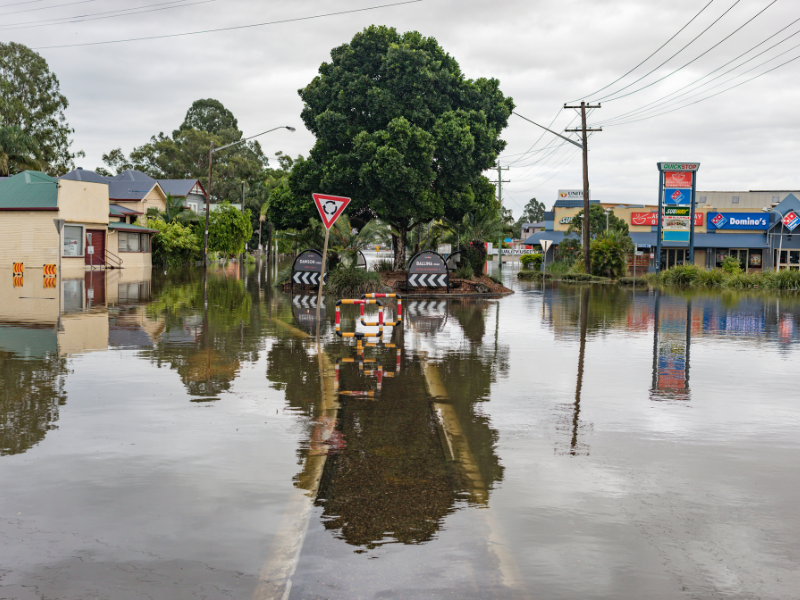
NRCF has held a Fundraising Account partnership with FRRR since 2017 to attract tax-deductible donations, enabling them to help community organisations meet increasing demands on their services and work together to build resilience across the community.
Initially they raised funds through a general Community Fund, and in 2020 established the Resilience & Regeneration Fund to raise funds specifically to support disaster recovery and preparedness in their region. The Fund responds to the increasingly frequent natural disasters affecting the region and the global pandemic. Recognising that these are not isolated events, and that resilience and regeneration are integral to a sustainable and prosperous region, they wanted to attract as much money as possible.
As at 30 June 2023, NRCF has raised $1,171,600 via these two Funds. In 2022, they announced a record distribution of $327,177 to 49 recipients across the seven LGA’s of the Northern Rivers. This was supported by distributions totalling more than $162,000 from their FRRR Fundraising Account in FY22. Projects span across disadvantage, housing and homelessness, recovery and resilience, and the environment.
NRCF will also be looking to use the funds raised through the Resilience & Regeneration Fund to respond in a meaningful and impactful way to the devastation brought about by the two 2022 flooding events that occurred in quick succession through their Annual Community Grants program. Informing their response is their ongoing research project to understand the issues and conditions impacting community recovery with a view to better support local not-for-profits and their activities into the future. In May 2023 they released their second flood impact report ‘Research, Respond, Recover: A year on from disaster’ which offers valuable insights across a range of indicators about how the community is recovering. It highlights gaps in funding for medium to longer term recovery, and ongoing key issues of concern around health and wellbeing, housing and homelessness.
With this increase in support comes a need for increased resourcing. Fortunately, NRCF has also received donations via their Fundraising Account specifically to support their operational and staffing costs through their General Fund. As a result, the role of Grants and Community Impact Manager has been introduced, which will boost their capacity, enabling them to expand their community grant programs and supporting them to broaden their reach.
Sam Henderson, NRCF’s CEO, said ‘The NRCF Board and staff certainly value the long-term relationship with FRRR, which is so important to them as a rural and regional Foundation. The support for NRCF’s community impact and grants team has been essential to achieve impact in the community.’ The need to respond to disasters has now increased so much that they’ve also recruited a part-time Grants Administration Officer to support the Community Impact Manager.
Ourschool connects students and alumni
Ourschool is a not-for-profit organisation that believes past students have a lot to offer current students when it comes to driving equity in education and positive, systemic social impact. In fact, Ourschool’s vision is that every Australian public secondary school has a thriving alumni community whose members are easily able to give back to their old schools. Since 2019, Ourschool has worked with school staff and alumni to inspire and support current students through meaningful engagements in school-based alumni programs.
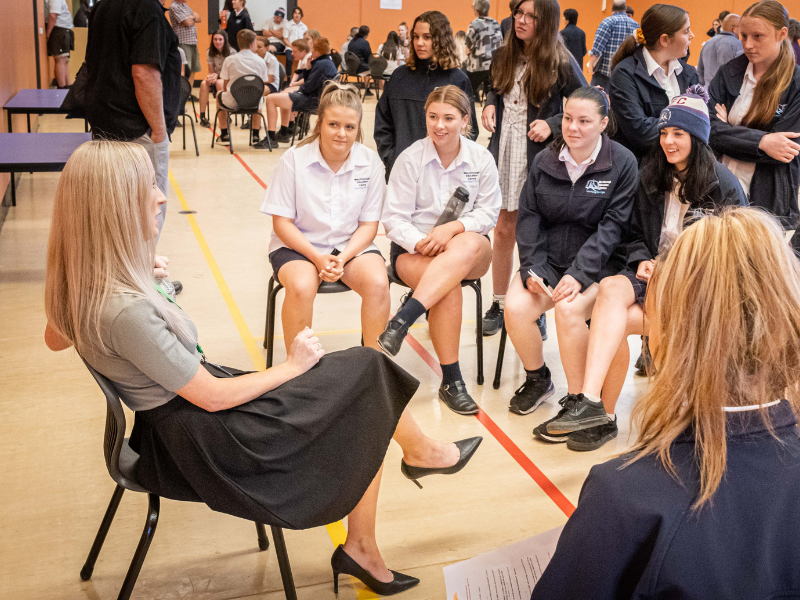
While principals generally see the value of alumni programs, limited funding in public school budgets makes it hard for school principals to invest resources into an alumni program’s establishment and growth. Chronic teacher and education support staff shortages at regional schools (thanks in large part to continued disruptions from COVID and teacher shortages) make it hard to plan alumni sessions and alumni engagement at schools.
But Ourschool is persisting and working hard to make it possible. They partner with FRRR, using a Not-for-Profit Fundraising Account to assist them to fundraise by offering tax deductibility for donations to help them deliver the program in more public secondary schools in rural and regional Victoria.
The funds are used to build program capacity and increase the number of regional schools receiving assistance from Ourschool. And it’s working, with the program operating in 14 regional schools, up from 10 in 2021. This involved employing more staff to deliver the services to the partner schools.
The reach is impressive — during FY22, 7,174 students were involved in 71 alumni career pathways or subject specific sessions, and 110 past students were involved in the sessions across the 14 schools in the Geelong and Ballarat regions alone.
As these alumni programs are “revolutionary” for public high schools, they require small steps, persistence, and a methodical approach to proving the worth of starting such a program. But even valued programs are faced with challenges.
One of Ourschool’s proposed solutions to this problem is the creation of a walkathon prototype school event to mobilise the fundraising capacity of a school’s community and its alumni to help fund and sustain each school’s alumni program. Ourschool is using some of the funds they’ve raised to develop an event resources and operations manual that will be packaged up for the partner schools to use and amend to run a high-quality, annual walkathon or other type of community-school event that raises funds to continue a school’s alumni program.
Check out this post to learn more about what Ourschool’s alumni activities look like.
Tomorrow Today Foundation (TTF) is the community foundation for the Benalla region in Victoria. It connects people, resources and ideas to create a stronger, more resilient and prosperous rural community.
Like many community foundations, Tomorrow Today has a community fund that receives donations to their corpus, and the income generated from that investment provides grants for Benalla and district projects. In FY22, they distributed more than $89,500 in grants to groups, families and individuals across the region.
Their fundraising is supported in partnership with FRRR through a Community Foundation Fundraising Account, which enables tax-deductible donations to be received on behalf of TTF.
One of the key projects Tomorrow Today fundraises for is their Education Benalla Program (EBP) – an initiative that aims to improve educational outcomes for Benalla’s children. In FY22, they worked with over 120 local partners to run activities that give every Benalla child the chance to thrive in life.
Their transformative program aims to create systemic changes to educational, social and environmental challenges, with the overall goal of raising the education and training completion rates of Benalla’s 17-24 year olds to equal or above the Victorian average to break the self-perpetuating cycle: poor school retention leads to life-long social and economic disadvantage; and disadvantage results in poor levels of school retention. The program starts at the very beginning of the education journey, working with families from the earliest ages and stages to prepare children for school and ensure they are ’ready to learn’.
And the results are in: there is significant quantitative and qualitative evidence indicating that the initiative is having the desired impact. In the 10 year anniversary publication of the EBP released earlier this year, Tomorrow Today’s founder and former EBP Convenor Liz Chapman OAM described how the last 10 years has been ‘a wild ride’. In that time, the percentage of children deemed developmentally vulnerable on one or more domains has decreased significantly, bringing Benalla much closer to state and national averages (source: 2021 Australian Early Development Census, which measures how young children are developing in their first year of full-time school).
“If there was a Tomorrow Today in every town, the positive contribution to community, education and engagement with young people would solve most of the common problems we face. I have enormous respect for the work they do.”
Danny O’Donoghue, Executive Officer of the NE Tracks Local Learning & Employment Network in the EBP 10 year anniversary publication
You can add your support by donating securely online, or check out the Tomorrow Today Foundation website to learn more about their work. To learn more about FRRR’s Fundraising Accounts for not-for-profits and community foundations, get in touch with Jo Kemp, our Philanthropic Services Manager.
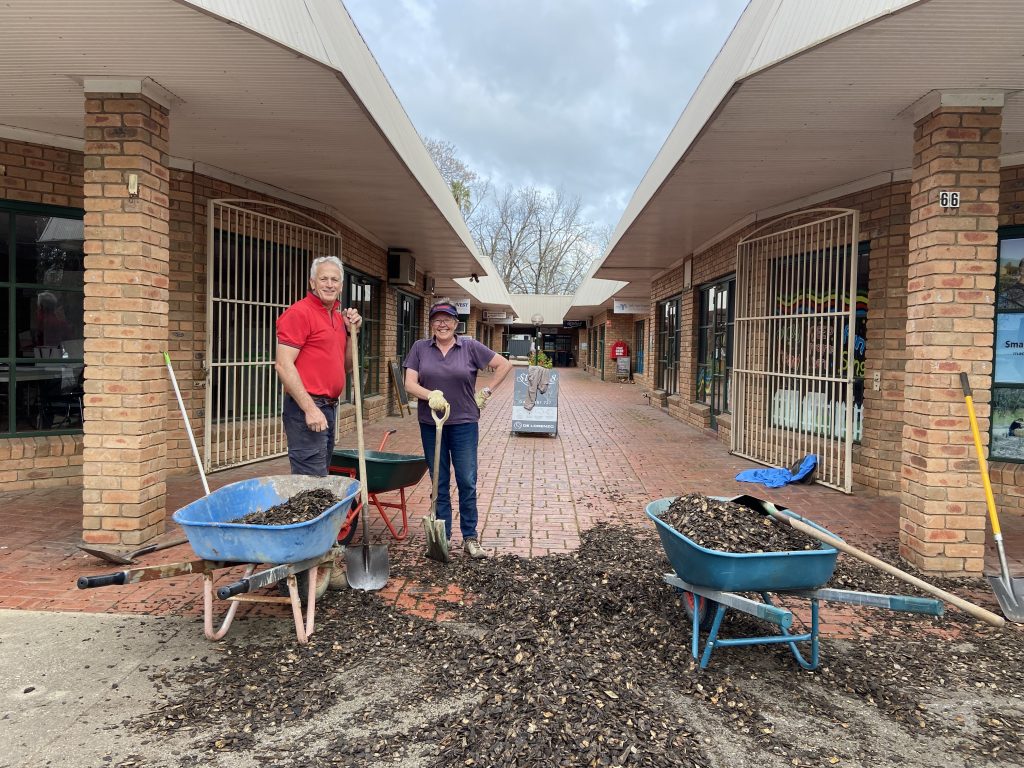
FRRR has today welcomed the extension of DGR-1 status for the country’s Community Foundations, in particular those in regional areas, which was confirmed in Tuesday night’s Budget announcements. This special status means that from 1 July, they can directly receive tax deductible donations from a broader range of donors to support more place-based philanthropy, which FRRR has long-championed.
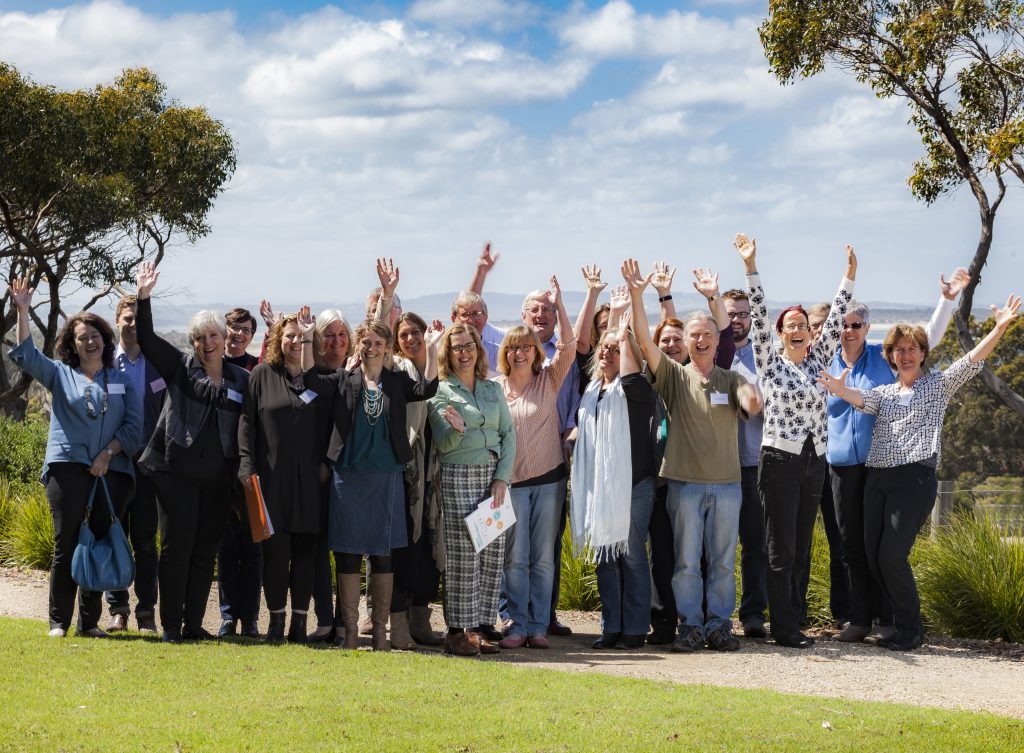
Place-based approaches are critical, especially given the compounding impacts of back to back disasters and the challenges and opportunities in each community. They allow local people to prioritise resources to deliver outcomes that they know will make the most impact, taking account of the unique circumstances of every place.
For the rural and regional communities that have a local Community Foundation that is a member of Community Foundations Australia, this legislative change will mean that they will soon be able to directly accept tax deductible donations to channel toward their local community needs, as well as give to local community organisations that do not have DGR-1 status.
FRRR CEO, Natalie Egleton, says that this reform paves the way for much-needed additional local giving, and that FRRR will continue to support rural communities across Australia to address local and regional issues.
“FRRR was established in 2000 through a partnership between the Australian Government and philanthropy to facilitate long-term and flexible funding to reach and stay in remote, rural and regional communities. In fact, we were set up to address many of the issues raised in the Pride of Place Inquiry, which recommended this DGR extension. We have long championed the important role of place-based philanthropy and indeed, have channelled more than $135 million to in excess of 12,000 projects to support local projects in remote, rural and regional Australia.
“Of this, more than $22 million has gone to support Community Foundations, with some $6 million via the 22 Community Foundations that we have partnered with through a Community Foundation Account. We are proud to have been able to help these Foundations raise and distribute those funds, and to have played a key role in the establishment, development, and promotion of the sector as a whole. We welcome this legislative reform, which will enable even more funding to be channelled locally,” Ms Egleton said.
Over the coming months, FRRR will work closely with the 19 Community Foundations that currently hold Community Foundation Fundraising Accounts and are in a position to take advantage of this legislative reform.
“FRRR will continue to back regional Community Foundations and to facilitate funding and collaborations for other remote, rural, and regional not-for-profits and community groups to advance resilient, vibrant, sustainable regional communities. Our role in connecting resources and supporting the capacity of local leaders and not-for-profit organisations, and having a long-term focus in our work, will remain a key pillar of FRRR’s work.”
Community Foundations Australia commented that “FRRR has been the engine room for the development of Community Foundations in regional Australia, where four out of five of these Foundations operate. This reform may change how we work with each other, but it does not change our shared ambition of working together to support regional community development. Our sector as a whole very much looks forward to building on our well established relationship with FRRR for mutual benefit.”
For more information on the services that FRRR offers, visit www.frrr.org.au.
Gunaikurnai Country
The Mirboo North and District Community Foundation (MNDCF) was set up in 2010 to strengthen their community. Serving Mirboo North and surrounding rural townships, two hours southeast of Melbourne, they embody their mission statement of building strong community through giving, facilitating and investing.
Their partnership with FRRR, through a Community Foundation Fundraising Account established in 2018, has helped them fund numerous community organisations and projects in the area, including buildings – all in the name of a cohesive and flourishing community.
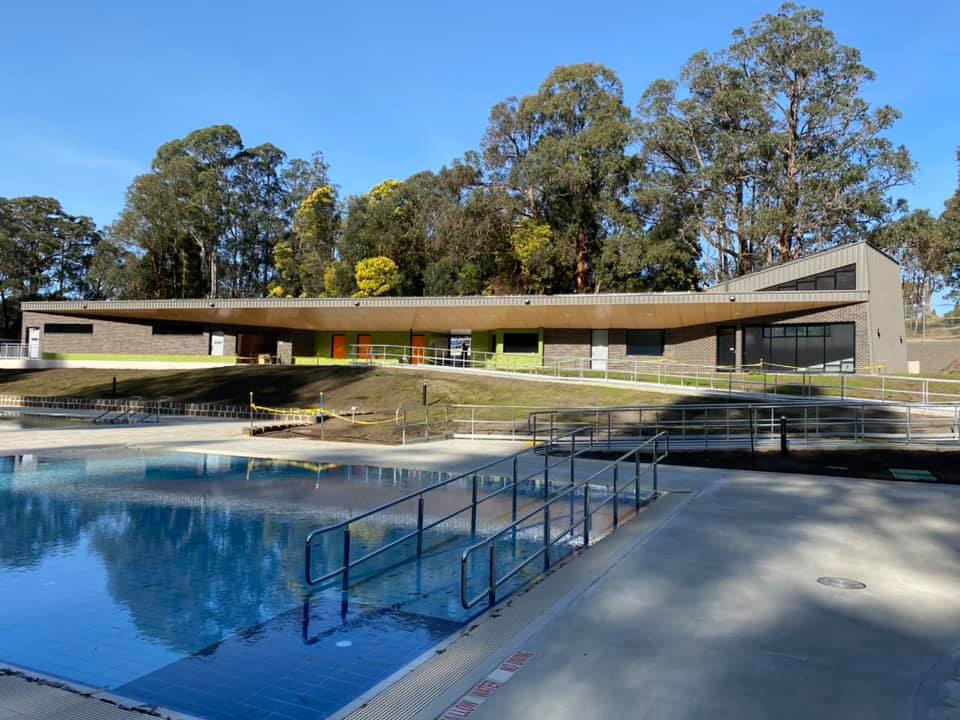
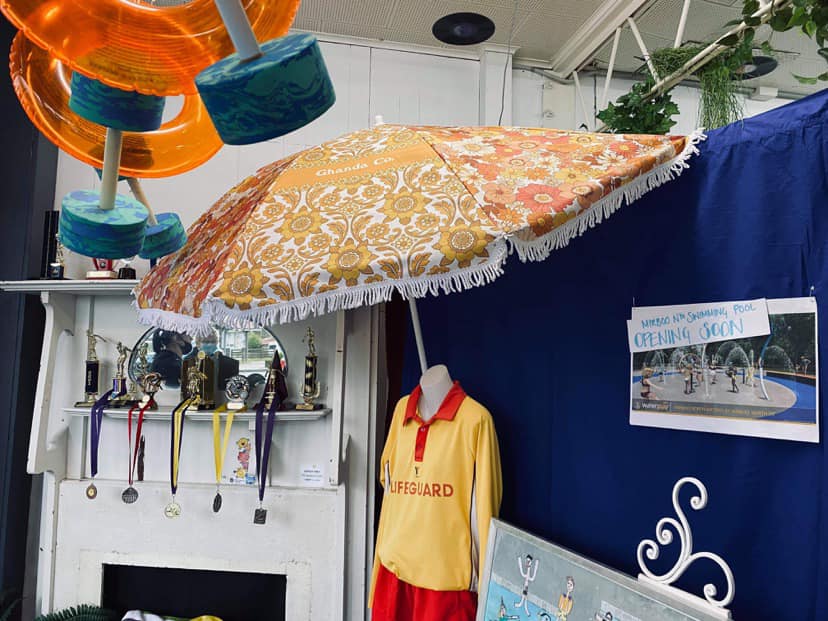 Local op shop getting the community excited for the opening of the pool
Local op shop getting the community excited for the opening of the pool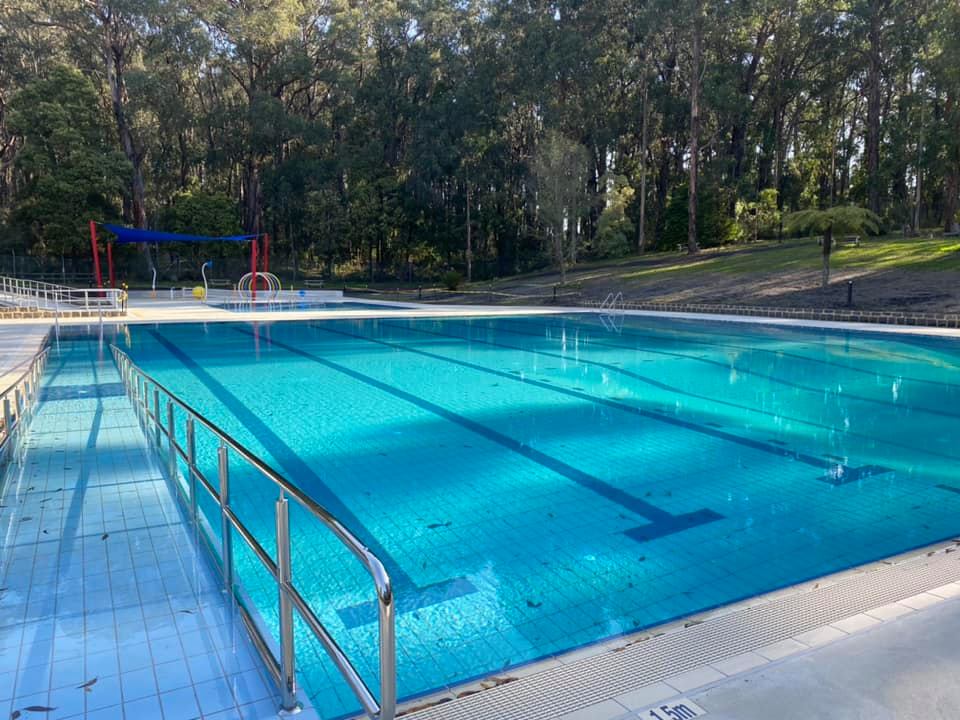
An FRRR Community Foundation Account allows organisations to leverage FRRR’s special tax status and secure donations for an agreed purpose, with FRRR providing a tax deduction for the donor where required, and the funds ultimately benefit local priority projects. It also supports Foundations to give organisations in their community that do not hold DGR-1 status.
In this last year, two projects have stood out among all the wonderful work the MNDCF does. One is building a Medical Centre for the Mirboo North community. Earlier in the year, they purchased a block of land. With this fantastic new facility, they aim to bring affordable and accessible healthcare to the region.
MNDCF also lent their support to the Mirboo North Community Pool project. This redevelopment involves updating the old pool structure and expanding it to support the community more effectively, especially through safe swimming classes and health and wellbeing activities. With an $18,000 contribution from the Foundation made possible through the Community Foundation Account, and their grand reopening scheduled at the end of October 2021, this project has all the hallmarks of success. The Mirboo North community is justifiably proud of the efforts of all involved.
MNDCF has also been a longstanding partner in FRRR’s Back to School program. Since 2012, they have distributed more than $38,000 in what has become a cornerstone of giving in the community. The Back to School program assists Australian rural and regional communities by distributing $50 vouchers to students and families in need of assistance with items like uniforms, shoes and stationery. In the 2021 program MNDCF gave out 90 vouchers to families in need across the district.
MNDCF is a shining example of how place-based philanthropy can support the growth of a community.

